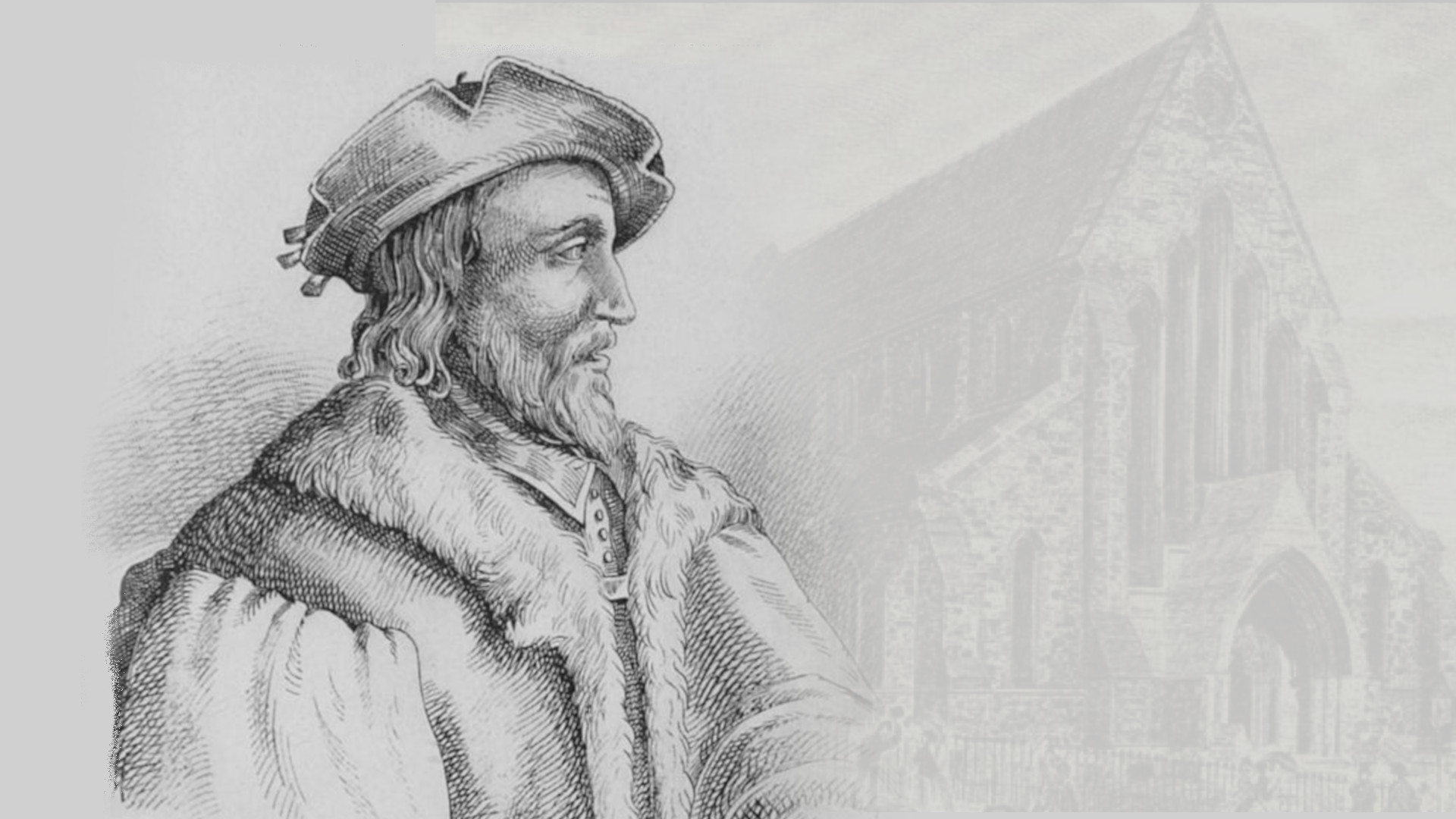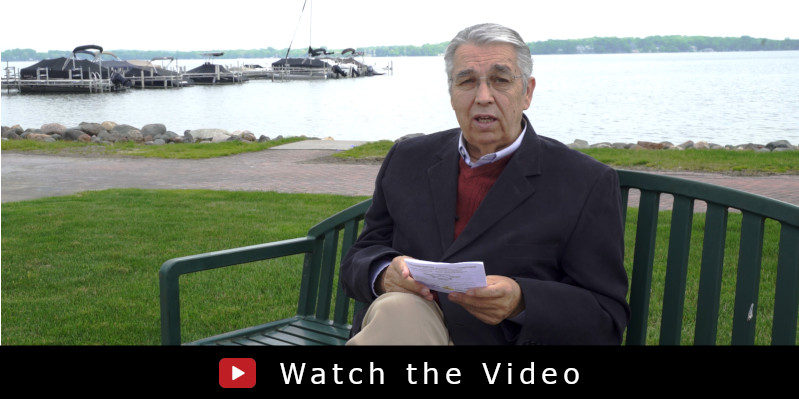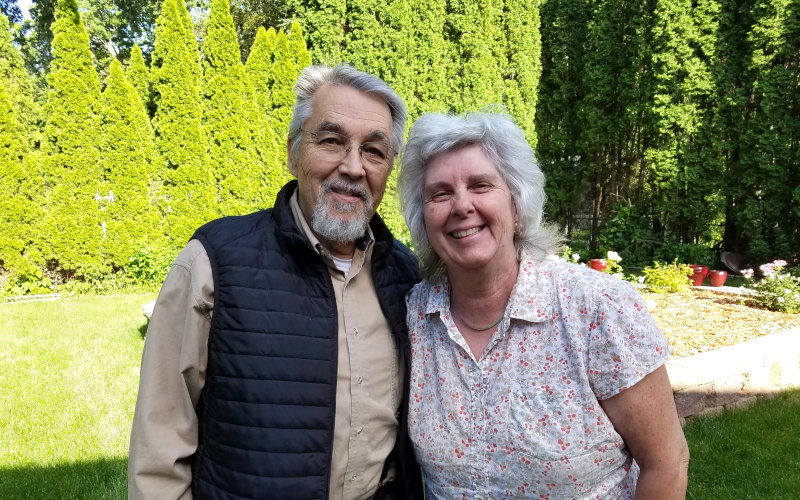Adoniram Judson: Man of Conviction

Adoniram Judson is perhaps the most famous Baptist foreign missionary. He caused a sensational stir when he changed his Congregational paedobaptist convictions to become a committed Baptist. He is widely regarded as the father of American foreign missions. This title is appropriate because he was the first vocational missionary, and also because of his enduring legacy as a self-sacrificing servant of Christ among the people of Burma (Myanmar).
Early Life
Adoniram Judson was born into a congregational family in 1788. His father, Adoniram Sr., was a prominent minister who was influenced by the surging Edwardsian and New Lights movements. He pastored in Wenham, Massachusetts, where he moved the church in the direction of the New Divinity, which tempered the old Hyper-Calvinism and mingled God’s sovereignty in salvation with evangelistic activism and revivalism. The young Judson was thus exposed to religious fervor, and reared under the care of a stern and principled father who desired no less than greatness for his son. Judson was intelligent beyond his years. His insatiable appetite for learning and his dedication to study set him apart from his classmates and fueled his growing ambition, which his father carefully nurtured. His parents sent him to the Baptist-run Providence College, hoping to avoid the liberal theology which was beginning to infiltrate the nearby Yale College. Nevertheless, skeptical theories were to be found at Providence, and Judson soon realized that a life of faith was at odds with his worldly pride and ambition. He became a Deist, aided in part by his friendship with the charismatic skeptic Jacob Eames.
After college, Judson taught at a local school for a short time before setting off on his own to find adventure and see the world. He traveled aimlessly until a dramatic experience provoked a renewed search for truth. He spent the night at a small inn in a room next to a dying man. The sounds emanating from the room caused Judson to think about death, eternity and about his friend Eames. In the morning, to his utter shock, he learned that the man who died was Eames from Providence College. After much soul-searching and angst he returned home and enrolled in Andover Seminary, the Congregational seminary founded in 1807 as an orthodox answer to the Unitarian leanings of Harvard College. There he experienced a staff and student body profoundly devoted to Christ. In time, he was converted and joined the Congregational Church in Plymouth. At Andover, the New Divinity spirit was alive and well, and the place was abuzz with missionary zeal. The Baptist William Carey and the work at Serampore, India were having a positive influence for global missions in America as well as England.
Judson began to contemplate foreign missions. He met and joined with students who had been part of the “Haystack” prayer meetings at Williams College. Among them were Samuel Mills, Samuel Newell, Samuel Nott, and Luther Rice. Judson, Mills, Newell, and Nott formerly petitioned the Massachusetts Association of Ministers to be their sending agency as vocational missionaries. Their enquiry led to the formation of the American Board of Commissioners for Foreign Missions (ABCFM). After much planning and fund-raising, the board appointed and sent Judson, Rice, Nott, and Gordon Hall as the first vocational American foreign missionaries to India to meet with the group at Serampore and branch out from there into ministry. Judson and his new wife Ann sailed from Salem in 1812. During the passage to Calcutta and in the weeks following, the Judson’s delved into the issue of baptism. Their study led them to embrace Baptist convictions and resign from the ABCFM. William Marshman baptized them August 27, 1812. Luther Rice also came to Baptist convictions and was baptized by William Ward on November 1. He would return to America to embark on a fund-raising tour while the Judsons would eventually make their way to Burma for a life of ministry.
Investigation into Baptism
Several factors contributed to the Judsons’ research into baptism. First, Adoniram had been exposed to Baptist teaching at Providence College, even if indirectly. Second, the ABCFM sent Judson to the London Missionary Society (LMS) to request their assistance for the American mission to India. Judson’s interactions with the English Baptists likely softened his previous strong negative sentiments toward them. Third, William Carey greatly influenced New England evangelicalism. The Serampore Trio were living heroes of the Christian faith and the American missionaries held them in high esteem. Furthermore, Judson knew he would likely be challenged by Carey and the other Baptists upon arrival, and so he would have to mount an able defense of his paedobaptist beliefs. Fourth, his desire to see souls saved and the prospect of discipleship led him to take up the question of the subjects of baptism. Finally, Judson’s earlier translation work on a New Testament from the Greek occasioned his study of the etymology and meaning of the words baptism and baptize.
Judson studied diligently over the course of four months. The long passage to Calcutta in tight quarters aboard ship provided ample time for him to take a careful, scholarly approach to the question. Ann Judson, in a letter to her parents, recounts how they found a trove of books on baptism when they reached their temporary home in Calcutta. During their stay while awaiting word from officials, they read numerous books on both sides of the issue and compared each argument to Scripture. Having weighed all evidence at their disposal, Adoniram, along with Ann who was initially reluctant, became firm in their conviction of believer baptism. Shortly after their baptism, Judson preached a sermon at the request of the Serampore team detailing the arguments that led to his change. Carey declared it to be the best on the subject he had heard, and it was immediately printed for wide distribution. Judson devoted his study to answering two primary questions: what is the proper mode of baptism, and who are the proper subjects? The studious nature of his arguments is remarkable to the point that they stand up even today in the realm of modern scholarship. His word studies brought him to the realization that the majority, if not all, Greek “lexicographers and critics” agreed that “immersion is the native and proper signification of the word βαπτιζω.”1 He did an exhaustive search of the usage of the verb and noun forms in the New Testament, and asserted that no instances require a departure from etymological and established interpretation of the word. He noted that the circumstances, though not requiring immersion, provide for it, and best account for the evidence (e.g. John and Christ in the River Jordan, and Philipp with the eunuch). In addition to the physical acts, Paul repeatedly used it in a figurative sense to teach theological truths. The spiritual truths on which the figure of baptism sheds light make no sense if the figure is sprinkling or circumcision. According to Paul, believers are buried with Christ in baptism, and to be therein risen with him. Israel was said to be immersed (i.e. covered) in the cloud in the wilderness, and New Testament believers would be immersed with (or in) the Holy Ghost and fire at Pentecost. Perhaps the strongest argument is Paul’s apparent forgetfulness or refusal to use baptism as a powerful argument to silence the Judaizers. Some Jewish Christians were still circumcising according to the Law, and insisting that circumcision was still necessary. If baptism were a replacement of circumcision, his strongest rebuttal would have been its replacement with the new rite of baptism. Judson’s second major argument concerned the proper subjects of baptism. Here the line of argument gets more complicated and involves the issue of the relation of the Abrahamic and Mosaic covenants to the New Covenant. Paedobaptists maintain they are one and the same. In a masterful analysis, Judson manages to lay out much evidence to show a distinction between the covenants and between the “church” of the Old Testament and that of the New. This is especially noteworthy because it required no less than a complete change in his method of interpretation (hermeneutic), a change that called into question everything he had been taught previously. Judson showed that reading the Bible literally and taking into account the historical context may lead one to Baptist doctrine.
Judson held to what today is termed the regulative principle. He argued,2
It is not sufficient for the proposer to show, that the practice is innocent, and even compatible with every other duty: it is a requisite, that he prove it binding…In the case of infant baptism, it is not necessary for us that we should urge one argument against it; nor is it sufficient for the proposer to prove, that every objection is groundless. It is the requisite for him to prove, that it is obligatory.
Adoniram Judson
In regard to the covenants, Judson showed that if baptism were the replacement of circumcision, then those who practice infant baptism are not adhering to the stipulations of the covenant, which require the rite only of males on the eighth day. And not only has the token for the covenant changed, but the old token has been explicitly prohibited, pointing to the annulment of the old Law covenant. In both arguments regarding the mode and subjects of baptism, Judson develops somewhat of a biblical theology of the topic, and provides extensive supporting evidence by way of extra-biblical literature, including intertestamental and patristic sources. Clearly his study was no light undertaking. His conclusion that “immersion of a professing believer, into the name of the Father, and of the Son, and of the Holy Ghost, is the only Christian Baptism” was fully investigated and biblically based.
The Congregational Response
When word of the Judsons’ abandonment of paedobaptist beliefs and their forceful argumentation for the Baptist position arrived in New England, it caused, needless to say, a shock among their support group. Adoniram Judson had been a stand-out among his peers. He had a brilliant mind and was destined to shine in whatever field of service. He had helped to rally the cause of missions and instigated the formation of a mission board to send him and others to foreign lands. He and the other missionaries were the hope of the Congregationalists to fulfill the Great Commission. Scarcely had they arrived in India, when they sent word home about their abrupt change in convictions. It would have been a disheartening turn of events for any group or denomination. The ABCFM scrambled to find a cause for this change. Enoch Pond, who had written many religious books and biographies, was designated to provide a rebuttal to Judson’s treatise. Pond’s first line of attack was to call Judson’s character into question. It was beyond the pale of imagination for the Congregational leadership to believe that biblical study alone had occasioned such an about face. They had earlier found Judson to possess an independent spirit, which gave them some pause before his appointment. It is true, Judson was not afraid of controversy, and he had a take-charge personality. Mary Hassletine, Ann Judson’s sister, wrote of Adoniram,3
He was by nature ardent, impetuous, and ambitious, with the most unshaken confidence in his own judgment, irrespective of the advice of his seniors. Of these propensities he was fully conscious, and against them continually warred.
Mary Hassletine
The ABCFM was concerned after Adoniram returned from his initial trip to request the aid of the LMS. Rather than informing the board and seeking their approval, Judson went beyond his mission and accepted appointment by the LMS. The Congregational board felt their authority had been undermined. Furthermore, due to the desired delay by some board members, he threatened to leave the board and join the LMS if they delayed in sending him. In response, Samuel Spring convinced the board to send them and he also issued a public rebuke to Judson. In Enoch Pond’s response, he assigned all blame to Judson’s pride and resentment over the rebuke. He wrote, “Mr. J. possesses naturally a proud, unstable, aspiring temper; and none need be informed, that mortified pride and cramped ambition which that change was likely to make on the minds of the community.”4 According to his narrative of events, Judson was so incensed with the board that he looked for an honorable way to take revenge and leave them. He found his answer in the Baptists. In fact, he had not really studied the issue in depth, but had rather relied on the laborious research of others. Pond accused Judson of plagiarizing the work of a Mr. Booth, whom Judson cited in his treatise. Beyond these egregious offences, Judson had entirely missed the point. Pond sought to disprove Judsons’ “regulative principle” by finding practical exceptions to believer baptism, by questioning the etymology of the word “baptize,” and by claiming a rather recent history of the teaching by the Anabaptists of the 16th Century. In contrast to Judson’s literal (normal) interpretation of Scripture, Pond’s argumentation relied heavily on a more “spiritual” understanding. He argued for the continuity of the Abrahamic Covenant with the New Covenant, and understood the visible church as being the same in every dispensation. The command to circumcise, therefore, carries over into the new dispensation. This was his coup de grâce: “Here is the foundation of Infant Baptism ; —a foundation firm and immoveable as the word and covenant of HIM who cannot lie. On this broad basis, the ordinance, without doubt, will rest unshaken, till the end of time.”
Judson’s Character
But Judson’s own words, the testimonies of others who knew him, and his legacy as a selfless missionary who gave all for the cause of Christ shed a different light on his character and motives. A personal grudge does not account for Luther Rice’s change of mind, or even that of Ann Judson’s. In letters to her parents, she confesses that Adoniram was “determined to read candidly and prayerfully, and to hold fast, or embrace the truth, however mortifying, however great the sacrifice” and they had become Baptists “not because we wished to be, but because truth compelled us to be.” Had not God watched over and provided for them through the good-will of the Baptists, the cost could have been far higher. They were compelled to resign from their board, leave their friends, and have no certain financial means for carrying on. Their mission could have ended before it had begun. Samuel Nott observed Judson’s character during the transition and testified:5
From the time of my arrival in Calcutta, I knew intimately the labor of his mind; and I declare my full conviction, that he gave the subject the most thorough and serious examination, studying carefully the Scriptures, and all the authors he could find on the subject; that he studied it religiously; and that, in all his conversation upon it, he seemed under a solemn and deep religious impression. Indeed he manifested a real enthusiasm upon it. It occupied his whole mind. Should I blame him at all, it would not be for sinister motives and insincere professions, but for suffering his mind to lose, in some measure, the calmness and coolness desirable in the consideration of argument. But, be that as it may, if I ever beheld evidence of piety in any man, I beheld it then in him.
Samuel Nott
Evan Burns’ recent study of the spirituality of Adoniram Judson concluded that his entire ministry was Bible-centered. While others resorted to social means upon encountering difficulty on the mission field, Judson “spent himself to evangelize …because he believed in the transforming power of the Word.”6 According to Francis Wayland, he was endowed with a “will of the very highest order. It was capable of controlling his physical nature, so that his body would do or suffer whatever it was commanded.” This, states Wayland, “is one of the rarest endowments.”7 He was a man of one idea. He “offered up himself a living sacrifice, on the altar, and seemed to look forward with pleasure to suffering and affliction for Christ.”8 Judson faithfully maintained believer baptism throughout his ministry, and never did he give a hint that he had changed for any other motive than to be true to God’s Word.
Conclusion
Adoniram Judson had pure motives in investigating the issue of baptism and drawing a conclusion that aligned him with the Baptists. He had more to lose than he could possibly gain. His decision was honorable and courageous. Few men would have the fortitude to go against family, friends, mentors, a mission board, and fellow missionaries for the sake of a strong biblical conviction. But the fruit of Judson’s life and ministry bears out the wisdom and correctness of his change, not only on the mission field, but also at home in America. Though the Congregationalists had lost three notable missionaries, the Baptists gained and a new era of Baptist foreign missions began. Luther Rice returned to America to raise funds and rally the Baptists for the cause. As a result, several influential pastors organized in 1814 the “Baptist Society for Propagating the Gospel in India and other Foreign Parts,” later known as the Triennial convention. In later years, Judson remained friendly with his old Congregational brethren and he was held in respect of the same.
Footnotes
- Adoniram Judson, Christian Baptism, (Boston: Gould, Kenall, & Lincoln, 1846), 5.
- Judson, 28.
- Horatius Bonar, A Missionary of the Apostolic School: Being the Life of Dr. A. Judson of Burmah (London: J. Nisbet, 1871), 14-15.
- Enoch Pond. A treatise on the mode and subjects of Christian baptism: in two parts designed as a reply to the statements and reasonings of the Rev. Adoniram Judson. Worcester: William Manning, 1819. Kindle Edition.
- J. Clement. Memoir of Adoniram Judson: Being a Sketch of His Life and Missionary Labors. (Roger Williams Heritage Archives, 1853), 33-34.
- Evan Burns, A Supreme Desire to Please Him: The Spirituality of Adoniram Judson, Monographs in Baptist History Book 4, (Eugene: Pickwick, 2016). 64.
- Erroll Hulse, Adoniram Judson and the Missionary Call, Kindel Ed. (Chapel Library, 2014).
- Bonar, 18-19.




